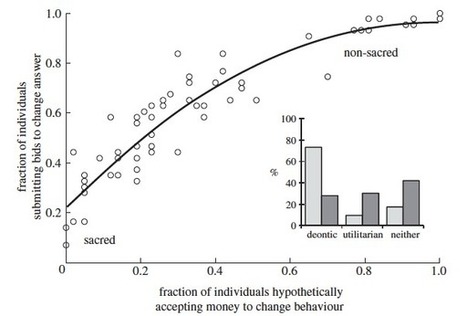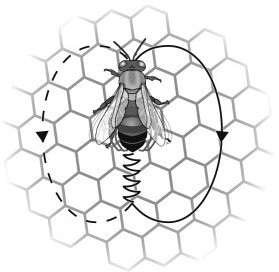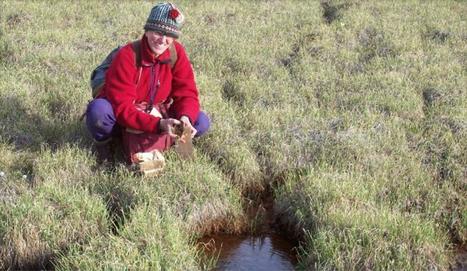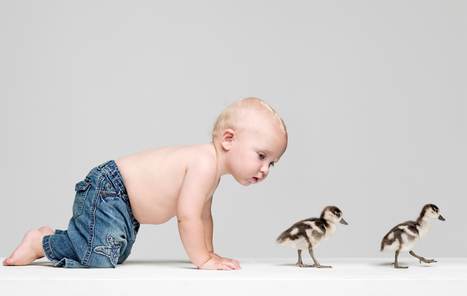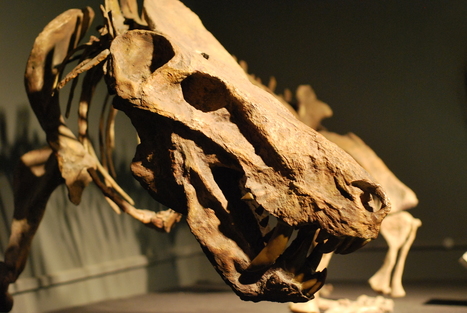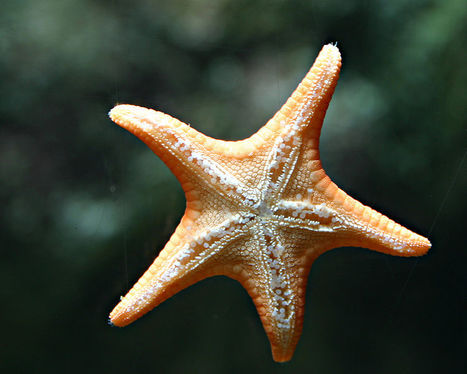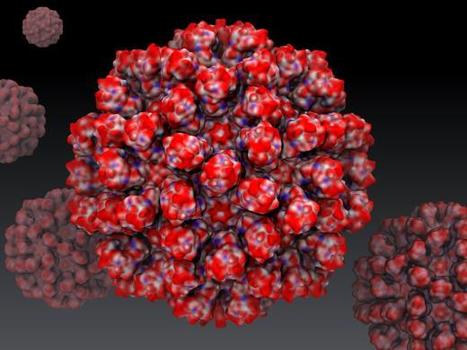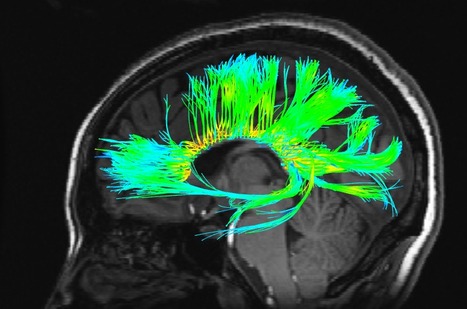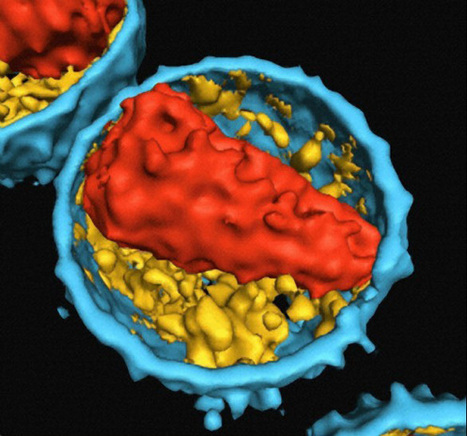Our visible universe is built mostly of glue, which generates roughly 98 percent of visible mass. Now, an experiment is gearing up to study novel manifestations of that glue.
Get Started for FREE
Sign up with Facebook Sign up with X
I don't have a Facebook or a X account

| Tags |
|---|

 Your new post is loading... Your new post is loading...
 Your new post is loading... Your new post is loading...
Sacred values, such as those associated with religious or ethnic identity, underlie many important individual and group decisions in life, and individuals typically resist attempts to trade off their sacred values in exchange for material benefits. Deontological theory suggests that sacred values are processed based on rights and wrongs irrespective of outcomes, while utilitarian theory suggests that they are processed based on costs and benefits of potential outcomes, but which mode of processing an individual naturally uses is unknown. The study of decisions over sacred values is difficult because outcomes cannot typically be realized in a laboratory, and hence little is known about the neural representation and processing of sacred values. We used an experimental paradigm that used integrity as a proxy for sacredness and which paid real money to induce individuals to sell their personal values. Using functional magnetic resonance imaging (fMRI), we found that values that people refused to sell (sacred values) were associated with increased activity in the left temporoparietal junction and ventrolateral prefrontal cortex, regions previously associated with semantic rule retrieval. This suggests that sacred values affect behaviour through the retrieval and processing of deontic rules and not through a utilitarian evaluation of costs and benefits.
Thomas Seeley gave a talk yesterday about how honeybees collectively decide on a new home, and how they use the evidence accumulation/drift-diffusion model to make decisions! When bees are ready to start a new colony, they’ll find somewhere to hang out and swarm. Foragers will then periodically wander off to try to find a good home: they like spacious holes high up on tall trees. When a forager finds a home that it likes, it will report back to the swarm what its found in the form of a waggle dance. Bees will shake their little bottoms as they walk in the direction of the potential home, and the longer they shake the further away their new home is. But the job of the bee is more of that of a politician or proselytizer trying to get other bees to follow their lead to the new nest site that they found. By dancing more and more, a scout bee will impress other watchful bees to go check that site out; generally, the more the scout likes the nest, the more time and energy its willing to invest in its wagglin’. But politics is rough and tumble. Scout bees don’t only advertise nest sites they like, they’ll actively go find the other scouts advertising other nests sites and headbutt and buzz at them. Needless to say, the more an Opposition bee gets headbutted, the less likely it is to continue advertising its own preferred site More: http://neuroecology.wordpress.com/2013/05/30/mechanisms-of-collective-decision-making-in-bees
New research suggests that sexual problems in middle-aged and older aged men may be linked to the relationship between their best friends and their partner. The research was conducted by scholars at the University of Chicago and Cornell University and is now published in the American Journal of Sociology. They found a relationship between sexual problems and the relationship the male participant had with their best friends and partner. When the female partner came too close, having even better relationships with the best friends than the male partner, this was associated with sexual problems such as having difficulty getting or maintaining an erection or having trouble achieving an orgasm during sex. Cases where the friendship is stronger for the female partner as opposed to the male partner were labeled as ‘partner betweenness’ by the researchers. 
Vloasis's curator insight,
June 2, 2013 9:18 PM
Hey, everyone lives longer when your wife gets off your friend's lap. 
Karene Crumb's curator insight,
January 4, 2015 3:18 PM
Prior knowledge has proven that men having male friendships is an essential part of living non-stressful lives. I find that its important for men to have companionship's because they help them bond.
World-famous surgeon Lazar Greenfield probably meant no harm. In a 2011 Valentine’s Day themed article in the trade journal Surgery News, Greenfield, president of the American College of Surgeons and the inventor of a widely used surgical device that prevents blood clots, reflected on a study that reported mood-enhancement properties of semen. He then made the following statement: “So there’s a deeper bond between men and women than St Valentine would have suspected, and now we know there’s a better gift for that day than chocolate.” What happened? An academic ruckus broke out. Greenfield was accused of being sexist. People threatened to demonstrate publicly. Eventually, the surgeon was forced to resign his position at the American College of Surgeons, as well as his editorship of Surgery News. More: http://www.united-academics.org/magazine/sex-society/get-the-science-right-semen-prevents-depression
Sakis Koukouvis's insight:
Surgeon shows how not to present scientific findings

Vloasis's curator insight,
June 2, 2013 3:04 PM
"Gallup still concludes that the research shows that the complex constituents of semen may contain some anti-depressant properties, providing an evolutionary advantage to the male." --Just hope they don't make the obvious suggestion for male depression.
When Catherine La Farge threads her way through the recently exposed terrain left behind by retreating glaciers, she looks at the ancient plant remains a lot closer than most.
Babies learn to babble before they learn to talk, at first simply repeating individual syllables (as in ba-ba-ba), and later stringing various syllables together (as in ba-da-goo). Songbirds exhibit similar patterns during song-learning, and the capacity for this sort of syllable sequencing is widely believed to be innate and to emerge full-blown — a theory that is challenged by a paper published on Nature's website today1. A study of three species — zebra finches, Bengalese finches and humans — reports that none of the trio has it that easy. Their young all have to learn how to string syllables together slowly, pair by pair. “We discovered a previously unsuspected stage in human vocal development,” says first author Dina Lipkind, a psychologist now at Hunter College in New York. More: http://www.nature.com/news/babies-learn-to-babble-like-birds-learn-to-sing-1.13090
Sakis Koukouvis's insight:
Research challenges theory of innate vocal abilities.
Our species is going to go extinct. We may have descendants – a new species, or some sort of post-human meld that we construct ourselves – but the long roll of lost creatures preserved in the fossil record leaves no doubt that extinction is inevitable. But just as the survival of the human lineage is only a vague possibility at this point, our eventual downfall also remains in the realm of the unknown. Our destruction could transpire in a blink of geologic time, or be at some future point millions of years hence. What will make all the difference is our ability to learn from the past and how we use that knowledge to construct the foundation of our future. In Scatter, Adapt, and Remember, io9 editor in chief Annalee Newitz considers just that in an optimistic exploration of how the key to our long-term survival can be forged from prehistoric clues and technological possibilities.
The raw material for a 5300-year-old iron necklace bead found in an Egyptian tomb has revealed itself to have fallen to Earth in a meteorite
Veritasium!! http://youtube.com/veritasium Veritasium video on temperature:
It's striking to learn that 14% of U.S. adults can't read, and an additional 21% read below a 5th grade level. Given the relatively recent development of language in us humans, this may not be altogether surprising—while we began to develop linguistic abilities 30,000 to 40,000 years ago, written and spoken language only emerged around 5,000 years ago.
A MAN suffering a rare brain disorder was so convinced he was a zombie that he would hang out in graveyards to be close to death. |
Women have a hard time switching social roles
We usually show different sides of ourselves on the workfloor than we do when we’re with family. In a group of friends we play yet another role, and so we do in a sport’s club. This switching between such social settings makes life stressful, a study suggests.

Vloasis's curator insight,
June 3, 2013 8:30 AM
A nice piece...be sure to check out the video "Life - timelapse of swarming monster worms". It looks like it was done in an animation studio, and, it's hard to believe its below McMurdo, Antarctica.
Recently, I came across an article on a transhumanist website that made the amazing claim that in the not-so-distant future, people will improve their life expectancy by having sex with robots programmed to give them ‘super-orgasms.’ Transhumanists believe that it will one day be possible to vastly expand the human lifespan through technology. Various means of extending human longevity have been proposed but this seems like one of the wackier ones. The author of this article is not alone in the belief that human lifespan can be extended through sex. Celebrity medic Dr Mehmet Oz goes so far as to advise people that if they have 200 orgasms a year they will extend their life by six years. While there is some evidence linking more frequent orgasms to longer life, the claims by Dr Oz and (some) transhumanists extrapolate far beyond the available evidence. More: http://scottsworlds.blogspot.com.au/2013/05/could-sexbots-one-day-give-people.html
Sakis Koukouvis's insight:
Research linking sex with longevity has led to some wildly exaggerated claims by futurists and others. 
Vloasis's curator insight,
June 2, 2013 9:14 PM
Old men dying happily in their sexbot's arms...old ladies giving out their last smile as their sexbots switch into sleep mode. A future with old people fucking robots is somewhat whimsical, and certainly better than the other way around. 
Refernan Ref's curator insight,
January 12, 2014 12:09 PM
Aunque hay pruebas aún de una conexión entre orgasmos y vida más larga, es claro que el buen funcionamiento sexual es mejor salud...simplemente, aún no hay suficiente información disponible, como en tantas otras cosas...
Researcher Dr Colin Hendrie from the University of Leeds said: ‘Female inoculation with a specific male’s cytomegalovirus is most efficiently achieved through mouth-to-mouth contact and saliva exchange, particularly where the flow of saliva is from the male to the typically shorter female”. Back in the 1920s, however, scientists were not aware of this – on the contrary. To avoid the spreading of unwanted germs during kising, they invented the ‘kissing screen’ – a net on a stick which can be placed between both mouths.
For the first time, a virus is found that steals a bacteria’s genes to use against it, opening up new possibilities in our fight against diseases
|

|
Scooped by Sakis Koukouvis |
Clocks are one of the enabling technologies of the modern world. Without highly accurate clocks, the global positioning system would not function correctly, neither would it be possible to synchronise networks over vast distances. And physicists rely on clocks to test the fundamental laws of the universe to ever deeper levels.
So having more accurate and reliable clocks is an important goal.
Today, Andrew Ludlow at the National Institute of Standards and Technology in Boulder and a few buddies unveil the two most accurate clocks ever built. They say their new clocks can keep time with an unprecedented precision of one part in 10-18.

|
Scooped by Sakis Koukouvis |
Most sponges, inspiration for dish cleaners and mess absorbers, feed by filtering water through those many holes and channels. Their scientific name, Porifera, literally means pore bearer. The channels are lined with special cells, chanocytes, each containing a flagellum that continuously beats. This whirling action by the flagellum filters nutrients and small particles of food from the surrounding water. With the particles near, the cell quickly engulfs by wrapping part of its membrane around it like a puppy lost in blanket. However, in this metaphor the puppy is digested by a dog-sized cell.
Flagellum and ingesting puppies, metaphorically speaking, is the norm for most sponges. However, in the dark depths of oceans and in the black caverns of the marine caves, lurks Earth’s strangest creatures—the carnivorous sponges.
Earth’s strangest creatures—the carnivorous sponges.

|
Scooped by Sakis Koukouvis |
A fascinating new neuroscience experiment probes an ancient philosophical question—and hints that you might want to get out more
The ways in which we live our lives may make us who we are.

An intriguing theory. I'm not sure how exploratory tendencies would be an inherently clearer path to identity, as the case could be made that by not exploring, it's possible to understand greater levels of where you are.

|
Scooped by Sakis Koukouvis |
Actor, author, and director Alan Alda has been put up to an odd task: steal an object from a drawer, lie about it, and see if a fMRI can catch him. Neuroimaging looks like it can read our minds, but can it? ...and does it have a place in the courtroom?

|
Suggested by Biosciencia |
PITTSBURGH, May 29, 2013 – A team led by researchers at the University of Pittsburgh School of Medicine has described for the first time the 4-million-atom structure of the HIV’s capsid, or protein shell. The findings, highlighted on the cover of the May 30 issue of Nature, could lead to new ways of fending off an often-changing virus that has been very hard to conquer.

|
Suggested by The BioSync Team |
A lunar mystery that has lingered for decades has finally been solved, thanks to data collected by NASA's GRAIL mission and some science detectives here on Earth.



